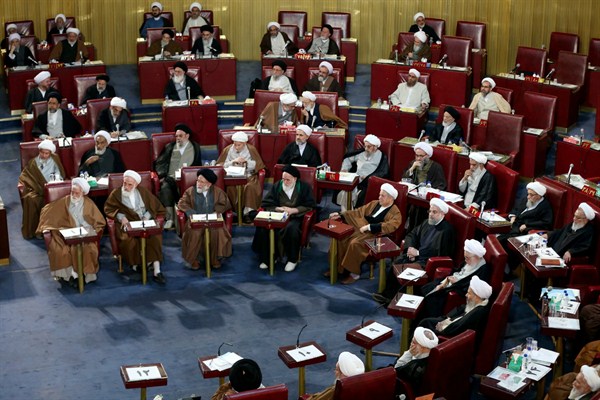Last month’s elections for Iran’s parliament and Assembly of Experts were complicated by the elaborate and extensive vetting procedure that filters out candidates considered too radical for the system. The overwhelming majority of those disqualified candidates belonged to the progressive end of the spectrum, usually referred to as reformists. Yet despite the authorities’ efforts to manage the outcome, Iran’s hard-liners still lost their majority in Iran’s 290-member parliament, or Majlis, while moderates won a majority in the Assembly of Experts, the clerical body tasked with choosing the next supreme leader. Key hard-liners, including two prominent clerics from the Assembly of Experts, were voted out.
The elections were the latest sign that when Iranian voters are mobilized by push or pull, they tend to get their message across. The “pull” is to vote in candidates that channel popular positions, and the “push” is to vote out candidates who are perceived as not addressing the concerns of the electorate. While the extensive vetting process that handicaps elections in Iran can weaken the pull factor, it cannot neutralize the push—it can only present the electorate with more or less palatable candidates. Once the candidates clear all pre-election hurdles, the voters can use their own metrics to ensure that their voices are heard.
As a result, a basic rule of Iranian elections has been that high voter turnout favors the more popular reformists, while a low voter turnout gives less popular conservative candidates a better chance of getting elected. This creates a paradox, in which Supreme Leader Ayatollah Ali Khamenei insists on a high voter turnout as a way of regularly proving the legitimacy of the Islamic Republic, while hoping the electorate does not get too enthusiastic about certain candidates. Khamenei and many other conservatives want to have it both ways, but they don’t always get what they want.

